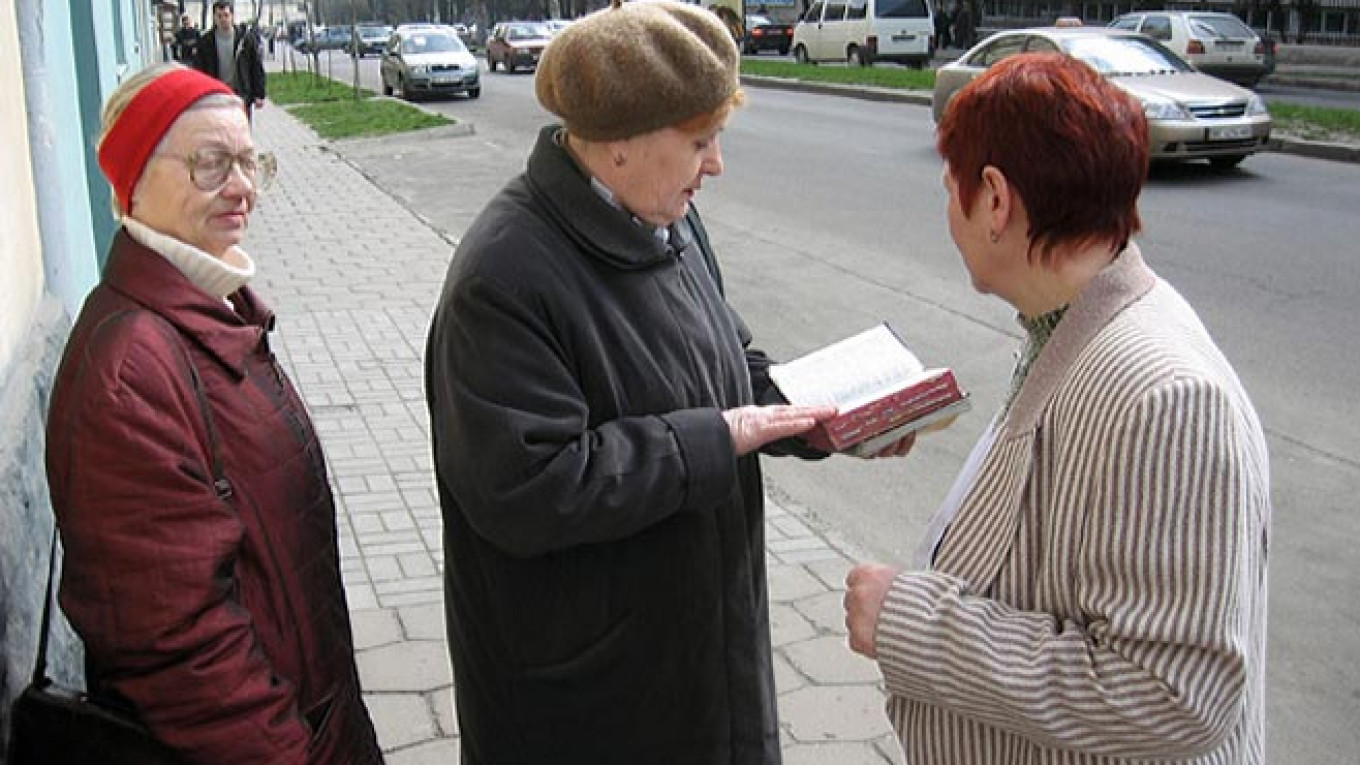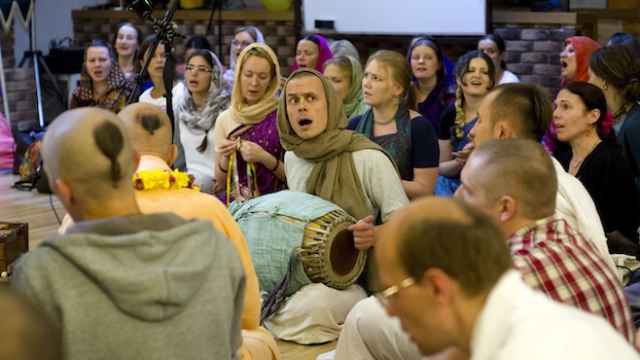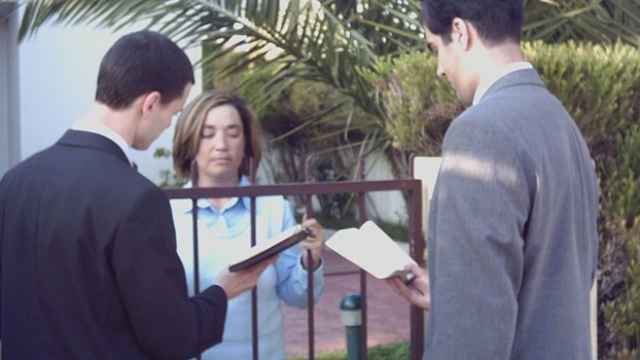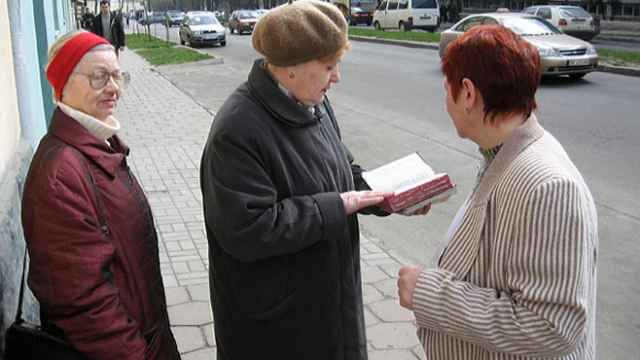A court in southern Russia has denounced a local organization of Jehovah's Witnesses as "extremist" and ordered it disbanded, the Interfax news agency reported Wednesday, in the latest in a long line of such rulings issued to the religious group in Russia.
The group's building and surrounding land will be confiscated by the local government in the town of Abinsk, Krasnodar region, the court ruled.
The group had been distributing publications titled "Humanity in Search of God" and "What Does the Bible Really Teach?" that were included in the federal list of extremist materials and are banned for distribution in the country, the news report said.
The local group's founders — Igor Soroka and Albert Belikov — were already fined for distributing banned literature in 2010 and 2012, respectively.
Nearly 70 Jehovah's Witnesses publications are included among the federal list of extremist materials. Most were blacklisted on allegations of inciting religious hatred by criticizing other branches of Christianity.
The group's lawyers have called the court's decision ungrounded and unconstitutional, and they plan to file an appeal with Russia's Supreme Court.
Last December the Supreme Court ruled that a Jehovah's Witnesses website and three of the movement's religious texts are extremist. Earlier in November it approved the Samara region's decision to ban the group.
While that was the first region-wide ban on Jehovah's Witnesses in Russia, Moscow and the southern city of Taganrog previously imposed bans against local groups based on claims of extremism in 2004 and 2009, respectively.
The Abinsk Jehovah's Witnesses organization was founded in 1999 and consists of 11 members. There are about 200 followers of the organization in Abinsk in total, Interfax reported.
A Message from The Moscow Times:
Dear readers,
We are facing unprecedented challenges. Russia's Prosecutor General's Office has designated The Moscow Times as an "undesirable" organization, criminalizing our work and putting our staff at risk of prosecution. This follows our earlier unjust labeling as a "foreign agent."
These actions are direct attempts to silence independent journalism in Russia. The authorities claim our work "discredits the decisions of the Russian leadership." We see things differently: we strive to provide accurate, unbiased reporting on Russia.
We, the journalists of The Moscow Times, refuse to be silenced. But to continue our work, we need your help.
Your support, no matter how small, makes a world of difference. If you can, please support us monthly starting from just $2. It's quick to set up, and every contribution makes a significant impact.
By supporting The Moscow Times, you're defending open, independent journalism in the face of repression. Thank you for standing with us.
Remind me later.






